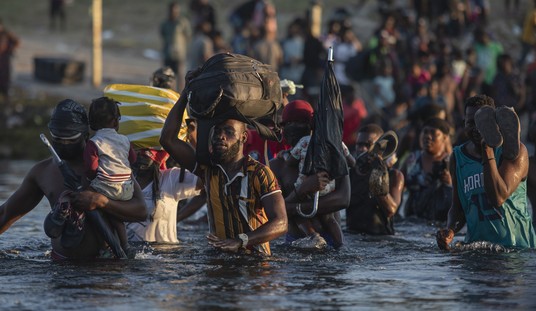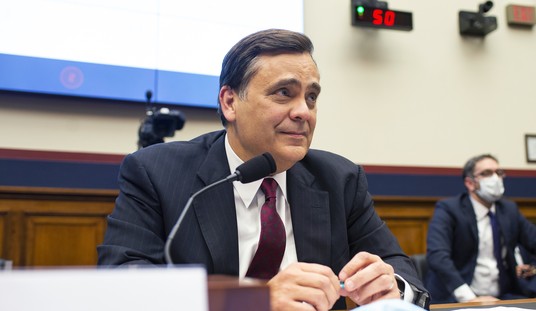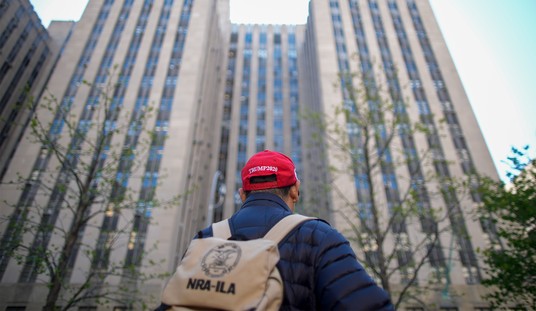Secretary of State Rex Tillerson is in the Far East taking stock on the ragged and abused alliances and relationships that Barack Obama left behind as he ditched Michelle and headed off to Tahiti. In particular he’s focusing on trying to tamp down what looks like an effort by North Korea to repeat its well tested technique of do-crazy-stuff-Obama-poops-himself-US-sends-money.
A little on the political back drop here.
Since Trump’s election, North Korea has been ratcheting up the pressure in the region by increasing the frequency of its ballistic missile tests.
North Korea’s leader, Kim Jong-un, said on Sunday that his country was making final preparations to conduct its first test of an intercontinental ballistic missile — a bold statement less than a month before the inauguration of President-elect Donald J. Trump.
Although North Korea has conducted five nuclear tests in the last decade and more than 20 ballistic missile tests in 2016 alone, and although it habitually threatens to attack the United States with nuclear weapons, the country has never flight-tested an intercontinental ballistic missile, or ICBM.
February 11: Test of new Pukguksong-2 intermediate range ballistic missile.
March 6: Four ballistic missiles launched.
The March lauches seem to be linked to the major US/ROK military exercises, Key Resolve and Foal Eagle. These exercise the defense of the Korean peninsula. What has made the DPRK very unhappy this year is that OPLAN 5015 is being exercised instead of my old friend, OPLAN 5027. OPLAN 5027 is basically stop the DPRK invasion, reinforce from the United States, counterattack, restore the DMZ, and then magic happens and all the troops head off for the delights of Toko-ri and Tongduchon and Hooker Hill in Seoul. Or so I’m told, anyway. OPLAN 5015 is a lot more fun:
The new military strategy, Operations Plan (OPLAN) 5015, called for a prompt response to a North Korean attack with a preventive strike on the North’s core military facilities and weapons as well as its top leaders. It differs sharply with the old OPLAN 5027, which is based on retraction, realignment and striking back. The new plan was signed by South Korean Joint Chiefs of Staff Chairman Choi Yoon-hee and Combined Forces Commander Curtis Scaparrotti in June 2015.
OPLAN 5015 focuses “on bolstering the capabilities for striking the headquarters” including the scenario of making a prompt attack on the headquarters and communication facilities of the DPRK. OPLAN 5015 consolidated OPLAN 5029 for the event of DPRK internal contingency, OPLAN 5027 in preparation of all-out war, and a peacetime OPLAN in response to local provocation. The OPLAN 5015 is also known to encompass plans against asymmetric aggression such as TBM/WMD and cyber warfare.
Hence the droopy drawers in the North when SEAL Team 6 and other SOF units arrived as well as B-1B bombers.
And the US, ROK, and Japan have run a sea-based anti-missile exercise:
Korea, U.S., Japan Stage Missile Intercept Exercise https://t.co/v2E7C0RA7h pic.twitter.com/V3TSbASRgI
— The Chosun Ilbo (@EnglishChosun) March 15, 2017
And we’ve begun deploying the Terminal High Altitude Air Defense system to the ROK. This system can counter most of the missiles the DPRK has.
The US and Korean militaries are taking very seriously the possibility that the DPRK will undertake some kind of provocation during the exercise. This is, after all, the country that blew up South Korea’s cabinet in Rangoon in 1983.
Back to the SecState.
He was in Japan yesterday and gave a joint press conference with Foreign Minister Fumio Kishida. It was very different from anything any US secretary of state has had to say on North Korea since 1953.
The first part is boilerplate:
As President Trump and Prime Minister Abe expressed in their February 10th statement, a priority of ours is expanding trilateral cooperation with the Republic of Korea. Trilateral cooperation allows our three nations to coordinate actions on major regional and global problems, and more effectively counter the threats posed by North Korea. We intend to continue our coordination in regard to the implementation of UN Security Council Resolutions 2270 and 2231, which imposed robust and comprehensive sanctions on North Korea to inhibit its campaign to develop operational nuclear and missile capabilities. North Korea and its people need not fear the United States or their neighbors in the region who seek only to live in peace with North Korea. With this in mind, the United States calls on North Korea to abandon its nuclear and ballistic missile programs and refrain from any further provocations. The U.S. commitment to the defense of Japan and its other treaty allies through the full range of our military capabilities is unwavering.
Note it highlights what seems to be a Japanese role in any conflict with North Korea and it also lets China know that we are guaranteeing Japan’s territorial integrity.
Then the good stuff happens:
QUESTION: (Via interpreter) My name is Takigawa from NHK. I have a question to both Minister Kishida and Secretary Tillerson. At the moment, the Trump administration is reviewing on the U.S. policy vis-a-vis North Korea. In your meeting, were you able to discuss that – the direction of the review? What was the position or the thinking as indicated from the U.S. side?
And it is also said that the U.S. may re-designate the North Korea as a state sponsor of terrorism. So I would like to seek your thoughts on this.
…
SECRETARY TILLERSON: Well, I think it’s important to recognize that the diplomatic and other efforts of the past 20 years to bring North Korea to a point of denuclearization have failed. So we have 20 years of failed approach, and that includes a period in which the United States provided $1.35 billion in assistance to North Korea as an encouragement to take a different pathway. That encouragement has been met with further development of nuclear capabilities, more missile launches, including those of the recent February 11th and March the 5th. In the face of this ever-escalating threat, it is clear that a different approach is required. The purpose of – part of the purpose of my visit to the region is to exchange views on a new approach.
…
SECRETARY TILLERSON: Well, as to China’s support towards encouraging North Korea to give up on its nuclear program, we do believe they have a very important role to play. China is a major source of economic trade and activity with North Korea. China has long stated their policy that they too want a denuclearized North Korea. China has voted in favor of the UN Resolutions 2230 and 2221, so we look to China to fulfill its obligations and fully implement the sanctions called for in the UN resolutions. We will be having discussions with China as to further actions we believe they might consider taking that would be helpful to bringing North Korea to a different attitude about its future need for nuclear weapons.
Today Tillerson is in the ROK. Sad to say the ROK is in a stage of instability right now. Their president was just impeached and the most likely successor is devoted to the idea that if the ROK just gives the DPRK enough money all will be well.
There will be no negotiating with the North Korean regime over its nuclear weapons program, Tillerson declared. (Thus dashing the hopes of an army of think tank apparatchiks, op-ed scribblers, and certain former New Mexico governors.) Even more significant than that, the secretary of state said that the U.S. policy of “strategic patience”—essentially ignoring North Korea in hopes that it will abandon its pursuit of weapons—had “ended,” and that the U.S. government would even consider military action against the rogue regime. In the meantime, expect tighter sanctions and more pressure on China to rein in its sort-of ally.
How will this work out? Probably no worse than the past. Right now the DPRK is getting offered a huge basket of sticks without a carrot in sight. China is not amused my their antics an has slapped some economic sanctions on them. So, politically, the DPRK has never been more isolated than is today. We can probably expect the DPRK to do something to gauge just how serious the situation is. Will this lead to them giving up their nukes? Probably not. But it will definitely increase the economic pressure on the DPRK as we stop paying them money to make nukes and then we’ll see just how firm Kim’s hold is on power.
And no article on North Korea would be complete without the “official” response:
Bloated anus Donald Trump is chastised for ignorant statements concerning Korean affairs, which reveal him as the offspring of drunken apes. https://t.co/yb2mcfDTq1
— DPRK News Service (@DPRK_News) March 17, 2017











Join the conversation as a VIP Member